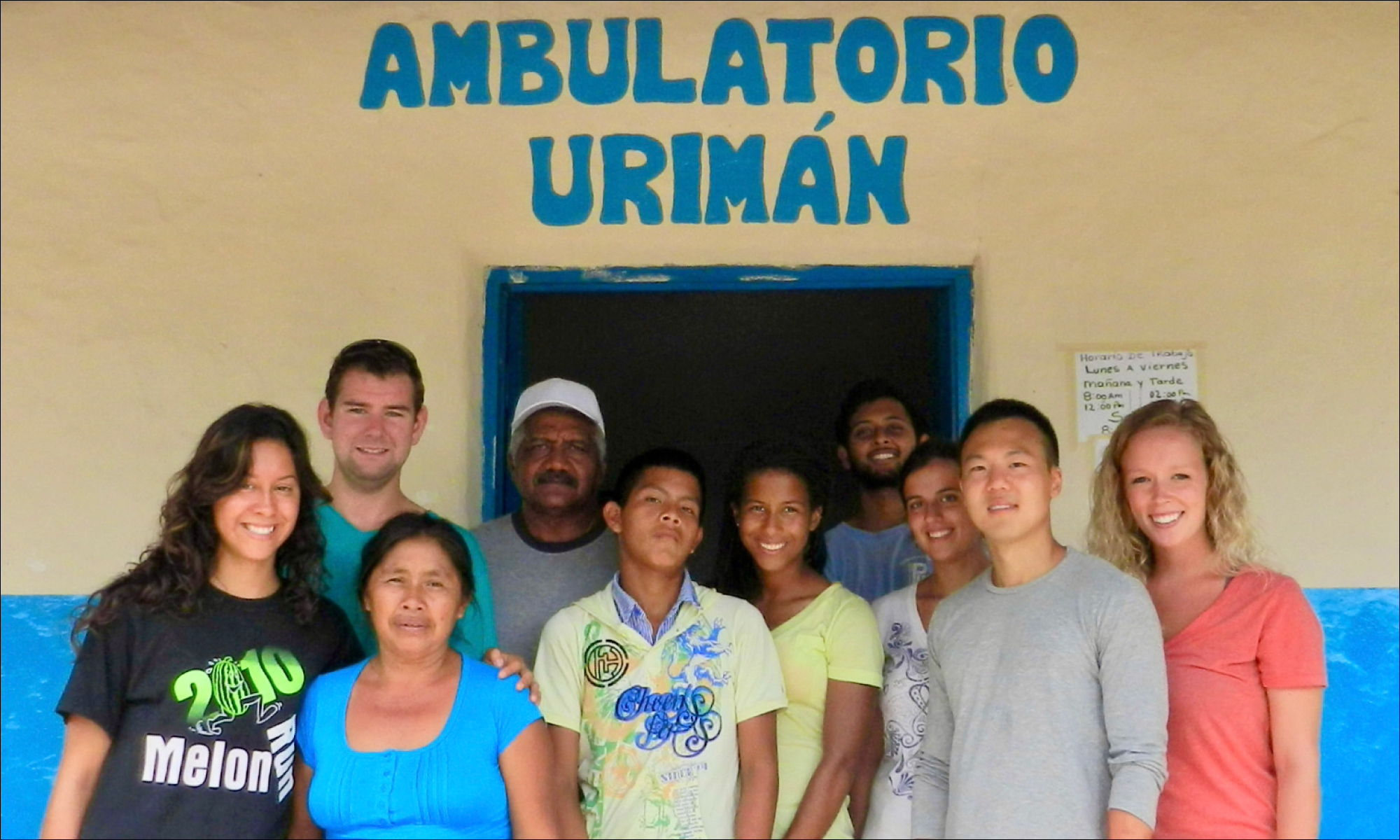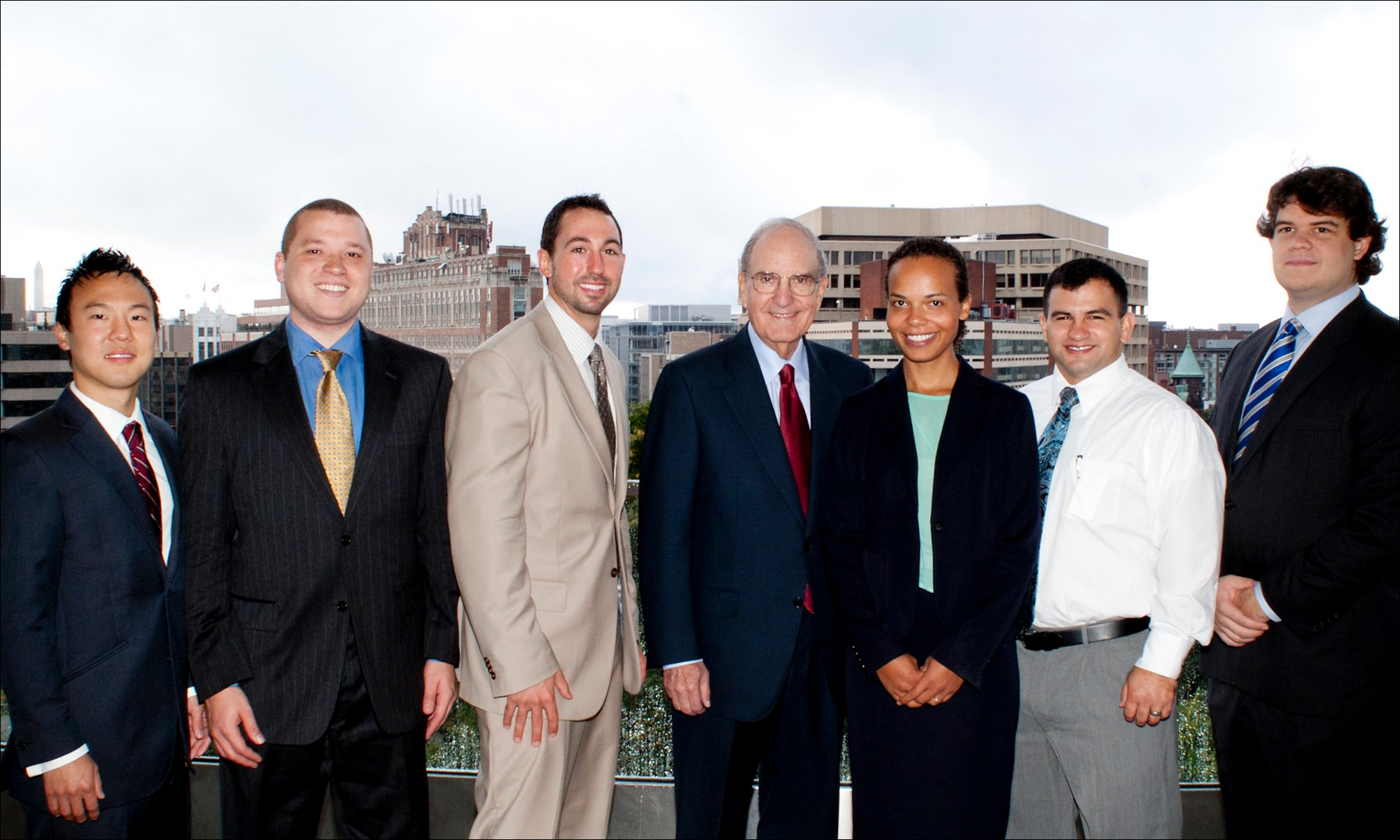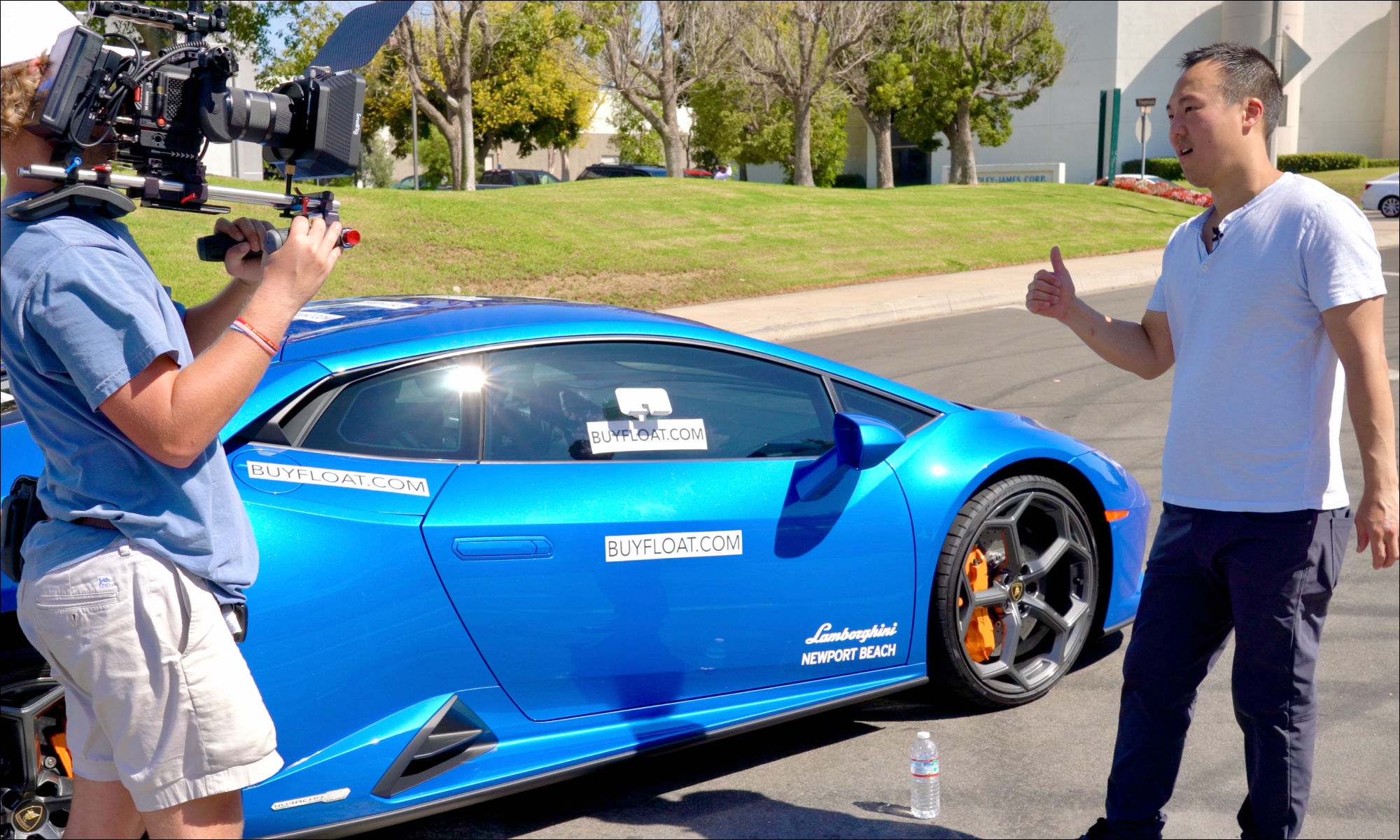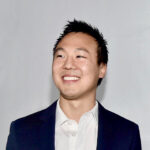
Fellowships offer unique opportunities for individuals to pursue their interests, gain valuable experience, and build networks within their respective fields. Some fellowships are specifically designed to enhance participants’ expertise in a particular field and develop specific skills, while others allow for a more freeform experience designed by the Fellow. The Luce Scholars Program is a more formal fellowship. It allows American students to gain exposure to Asian countries they would not otherwise have had exposure to through immersion and placement in professional positions. The Mitchell Scholarship offers an academic component more like the latter. This program funds one year of study at an institution in Ireland and Northern Ireland for students with a commitment to community and public service. Both types of programs can be valuable ways to shape your professional journey. We spoke to YJ Heo, an alumnus of both programs, to discuss how both of these fellowships impacted his professional trajectory and led him to pursue different career paths than he initially considered.
Tell us about your background and professional journey. What led you to the Mitchell Scholarship and Luce Scholars Program?
In my first year at Swarthmore College, I expressed interest in the biological sciences, and thanks to a professor’s persistent encouragement, I applied for a research experience for undergraduates (REU) program. My summer experience at Indiana University Medical School was incredibly eye-opening, but I also craved an on-ground experience that was outside of a laboratory environment. For the summer after my second year, I found an opportunity through a college friend to shadow a village doctor in remote, southern Venezuela. After an unforgettable experience helping the physician treat malaria patients, deliver infants, and respond to medical emergencies, I developed a plan to bring resources to the region to focus on preventive interventions. These efforts transformed into a public health organization, and for many years after my first summer there, the program would bring students from around the world to promote public health initiatives such as managing vaccination programs, backing agricultural initiatives, and organizing educational programs in waste management, dental hygiene, and digital communications.
Surrounded by determined classmates, we applied for grants from various foundations. We also experimented with website development–this was my first time building a site from the ground up. Within a month after launching our website, we heard from a staffer at the Clinton Foundation, who asked me if I could attend the Clinton Global Initiative to meet the former President.
I grew up in a relatively insular community without direct access to influential national leaders, so this resonated deeply with me–an ‘aha’ moment. I had taken for granted the power of the internet throughout my lifetime, and I realized the importance of marketing our efforts through a website. The idea of ‘if you’re not online, you don’t exist’ began to take form–a concept that would, years later, lead to my launching Publit, a personal website builder. I was just a student from southern Indiana who–through effective marketing efforts–was able to meet one of the most powerful people in the world and receive funding from his foundation.
At Swarthmore, I was also a four-year varsity sprinter on the track and field team, and during my final year, I was the student body president. These activities and the publicity surrounding the award bestowed by President Clinton caught the attention of my professors–they strongly encouraged me to apply for these national fellowships, many of which I lacked any familiarity with before. Along with the listed benefits of the programs, the prospect of expanding my worldview through travel was extremely exciting.
I applied for a Fulbright research opportunity in South Korea, and I also applied for the Luce Scholars Program for Asia. Fortunately, I was awarded both and chose to live and work in Hanoi, Vietnam through the Luce Scholars Program at the Institute for Population and Development Studies, a public health arm of the Vietnamese Government (I ceded the Fulbright).
When I first applied for these programs during my senior year, I was also interested in the Mitchell Scholarship, but I wanted to make sure that I didn’t apply to these programs all at once–to leave the possibility of having two back-to-back experiences. Fortunately, I was awarded the Mitchell Scholarship at the start of my time in Hanoi. I could look forward to a more academic experience in Dublin that would complement my experiential learning by working in Hanoi.
Ultimately, a series of amazing experiences, guidance from advisors, and support from my college served as catalysts for these national fellowships, and my hope is that more students learn about them earlier.
Both the Mitchell Scholarship and Luce Scholars Program are forging relationships between US citizens and Ireland and Asia, respectively. Why did these missions appeal to you? What were some of the activities you undertook as a fellow in these programs?
Growing up in southern Indiana, the public library was my gateway to the world abroad, and I became keenly aware that I lacked global experiences. Befriending international students in college made me realize the benefits of living elsewhere—maybe this might broaden the lens through which I understood the world.
The Luce Scholars Program lent me momentum to travel all throughout Asia and see firsthand how deeply connected the global economy was. Observing the rapid development of new factories whose products would feed the incessant demand of American consumers. Recognizing that the influx of cash from industrialized countries is what would be buoying and expanding the next generation of Asia’s middle class. Realizing that this transfer of capital is what has led some American communities towards economic decline, eventually leading to further domestic instability and tumult. These observations would add to the perspectives I would develop from work-related economic and public health research along with the ideas that would arise from many hours of discussions with new Vietnamese friends.
Amidst a few Luce Foundation-led gatherings, the program also allowed me to travel each month and visit other Luce Scholars placed throughout Asia.
While the Mitchell Scholarship had a significant academic component, which differed from the Luce Scholarship’s more experiential approach, the general structure of the program was similar. In between the formalized gatherings that would bring all Scholars together a few times a year, we would individually be free to roam throughout Ireland and Northern Ireland and meet with other Mitchell Scholars.
While undertaking graduate work to earn an MPH at University College Dublin, I would, again, have wonderful opportunities to befriend my Irish classmates and connect deeply with my Mitchell cohort. Very similar to my Luce Scholars group, the Mitchell Scholars were all incredibly accomplished, and I thoroughly enjoyed learning about everyone’s individual path to Ireland.
Both experiences had the effect of humanizing another country that I could only access through media in prior years. The programs succeeded in ‘making the world feel smaller and more connected’ as well as helping me develop incredibly close connections with other Scholars. Not only were we surrounded by incredibly intelligent and inquisitive people, but I’ve made close, lifelong friends with some of my classmates.

What advice do you have for others applying for the Mitchell Scholarship or Luce Scholars Program?
The best advice I can give is to start early! In my experience, you can increase your chances of winning by developing a strong personal brand, speaking with former Luce Scholars and Mitchell Scholarship winners, writing your personal statement well in advance of the due date, and practicing your interview as much as possible.
To develop a strong personal brand as a student it’s important to build great relationships with your professors early in your college career. It takes time to demonstrate that you are an excellent student and go above and beyond expectations. If they can honestly say that you are ‘one of the best students they’ve ever had’ then your recommendation letters will be compelling.
A personal website is also helpful for your personal brand because you can showcase the work you’ve done (beyond just writing about it) which could ‘push you over the fence’ to become a finalist. Many winning applicants are creating personal sites, and you want to make sure you aren’t out-competed. If you do not happen to have the budget to pay for one, try requesting a small grant from your fellowship office, which has every incentive to support your candidacy (or email me at [email protected]). You can use Publit to create one, but the platform itself isn’t what’s crucial.
In addition, speaking with former fellows, individuals who have been Luce Scholars or Mitchell Scholars, will provide you with valuable insight into the selection committee, the interview process, and the experience. Most fellows enjoy speaking with aspiring fellows. Don’t hesitate to use tools like LinkedIn and the fellowship program website to identify and contact alumni.
Furthermore, write your personal statement as early as possible so you have ample time to circulate it to your professors and advisors for feedback. You are going to need to refine and improve your personal statement multiple times, and you don’t want the quality to be adversely impacted by the deadline.
It’s easy to become tunnel-visioned in your writing voice, so check if your narrative highlights the pivotal components of your story. Your personal statement can have four components:
- your entire history and background that led you to your college,
- everything great that you accomplished in college,
- how a national fellowship after your college experience will help you achieve your goals over the next few years, and
- where this will lead you ten, twenty, or thirty years later (what kind of societal impact will you have made?), and why this matters.
It’s important that you answer why they should care more about you as an applicant. A great personal statement highlights your leadership abilities, specific ‘fitness’ for a given program, deep insights into your background (who are you, really?), long-term potential, and structured writing that isn’t too boring. You ultimately want the reviewer and selection committee reader to believe that you will become someone of note in the future.
Finally, you need to prepare for your interviews. If you’ve spoken with a former fellow, you will likely have insight into what questions are asked during the interview. You can also find many examples online. It’s important to have clear, thoughtful answers to all of your interview questions. For some people, interviewing comes naturally. For others, it can be a very difficult ‘performance.’ Regardless, practicing will help you get asymptotically better, so start practicing as early as possible. Know and expect to feel discomfort in any formal interview setting, try to replicate a setting that draws this feeling of discomfort. By making that discomfort a companion, it will help you perform better when you get to the interview stage. Make sure to have a friend judge you harshly.
How has your experience with both fellowships shaped your career trajectory over the last 10 years? Have your fellowship experiences led you to any special ventures or opportunities?
I’m a huge proponent of the Luce Scholars Program and the George Mitchell Scholarship because of their potentially life-changing impacts. As an undergraduate student, I was on the track toward medical school. This can certainly be a desirable career path for many, but I was more interested in entrepreneurship and startups. The fellowship programs allowed me to look inward and truly shape what I wanted in life. Lower-income or middle-class students rarely have the opportunity to be able to ‘take time off’ and fully immerse themselves in shifting a career path, but my national fellowships gave me this opportunity.
Without these fellowships, I would have likely attended medical school and become a physician. I think I would have wanted to be an entrepreneur, however, it’d likely have been more in the capacity of an advisor with a specialized background in public health or medicine, as I might not have been able to easily sway from the medical track.
During my fellowship years abroad, I realized that at my core, I wanted to create and invent products that millions of people could use. After years of building, I have finally launched products that are currently in the marketing and selling phase.

What are you currently working on? Do you have any plans for what you want to do in the future?
I’ve spent the last five years building and releasing my products FLOAT and Publit. I have also wanted to invest more time in supporting more fellowship applicants. Personally, I want to increase awareness about them among a wide-ranging group of students and young professionals. This has led to me tapping into online spaces to share my insights via YouTube and TikTok, and I have also compiled resources on my website nationalfellowship.com.
Publit and FLOAT are actualized mechanisms for me to fulfill my goal, which is to be a builder and creator of products that many people find valuable. Publit can help you market yourself more effectively online–for graduate school, jobs, and beyond. Publit helps everyone invest more in building up and sharing a corner of the web that is ‘theirs’–to ultimately take ownership of how other people perceive them. I believe that a product like FLOAT (if it isn’t FLOAT itself) will be in every home in America, eventually, and I’m working to try to make this happen. The way in which a seemingly ordinary ‘toaster’ (or any common household good) exists in every home is how I eventually envision a product like FLOAT to become.
As I zoom out on my life, I realize that national fellowships lent me some courage to jump into the risky world of startups and entrepreneurship, but I love what I do. To all future applicants, I hope you take advantage of these incredible opportunities, develop lifelong friendships, and chart a path for your lives that leads to meaning and fulfillment. Once you commit to a national fellowship, the world can open up for you.
